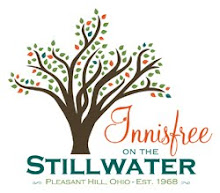I’ve wanted to write since I wrote my first formal story when I was in seventh grade. That experience left an impression on me that never faded, and even though life took me elsewhere from that original experience, the idea was always there.
In 2005, after four years as a network architect and at the tail end of a (at the time) fifteen year Information Technology career, I decided that I could not ignore my idea of becoming a writer any longer. I committed myself to a radical transformation from a network integration specialist into a published writer.
In some ways, modern journalism faces a similar choice. Throughout the history of news gathering and reporting, the profession that would become journalism has evolved and transformed as technology and the demands of the societies journalists have served have changed. Certainly, some ideals make news reporting better today than it may have been in the past, but the fact that those ideals have not always been ideal proves that change has occurred.
According to the Society of Professional Journalists, the goal of a modern journalist is to accomplish the following four things:
- Seek the truth and report it
- Minimize harm
- Act independently
- Be accountable
In themselves, these are laudable goals for journalists to strive toward; however, I think that the interpretation the SPJ puts on how these goals are achieved represent why journalism is struggling as a profession in the modern marketplace.
To me, the problem rests with one basic idea: why should the consumer care? In our modern world of 24/365 news from literally hundreds of potential sources, why should the news consumer care about the reporting of a particular source? If all sources are reporting neutral, factual news, then why care who reports it?
What makes news stand out and what draws readers to certain news sources, in my opinion, is the very lack of neutrality journalists claim they are striving toward. People watch and read Fox News or Slate because they can perceive the bias and so they seek out biases that they agree with.
Some journalists stand aghast at my previous statement because they fundamentally do not believe that people should put their bias into news. I think this rejection of bias extends not just to those reporting the news, but also to those who are consuming it. If that is the case, then what is the point of news at all?
The point, as I see things, is for the journalist to help create a conversation in the public marketplace of ideas. In order to do that, the journalist has to compete with all of the other 24/365 sources to get the story out. The way to compete is to tell the story with passion and from a point of view that makes people pay attention to what is being said.
This is why I think citizen journalism, of all the experiments in journalism going on right now, has the best chance of succeeding and transforming the profession into something relevant to the 21st century. Citizen journalists, through fair, factual, passionate reporting from a particular viewpoint have the chance to create the conversation in a way neutered journalism cannot.
Further, citizen journalists--or whatever they become--create that conversation without violating the spirit of anything the SPJ thinks journalists should be doing. Citizen journalists can seek the truth, minimize harm, be independent, and be accountable while also being passionate and, yes, biased about their reporting. Citizen journalists can report the truth without being neutral and without compromising the truth.
So can all journalists.
As the internet and media technologies yet to be realized change the way people gain access to the news, the choice of what kind of news people are looking for will make the movement of the marketplace more and more clear. People want to know more than what happened. They want to know why and they want to know what they can do. Journalists can answer those last two questions if they want to, but they have to change in order to do so.
I’m transforming myself, I hope for the better. Journalism can transform too, and it will be for the better of the profession and everyone who relies on it.
